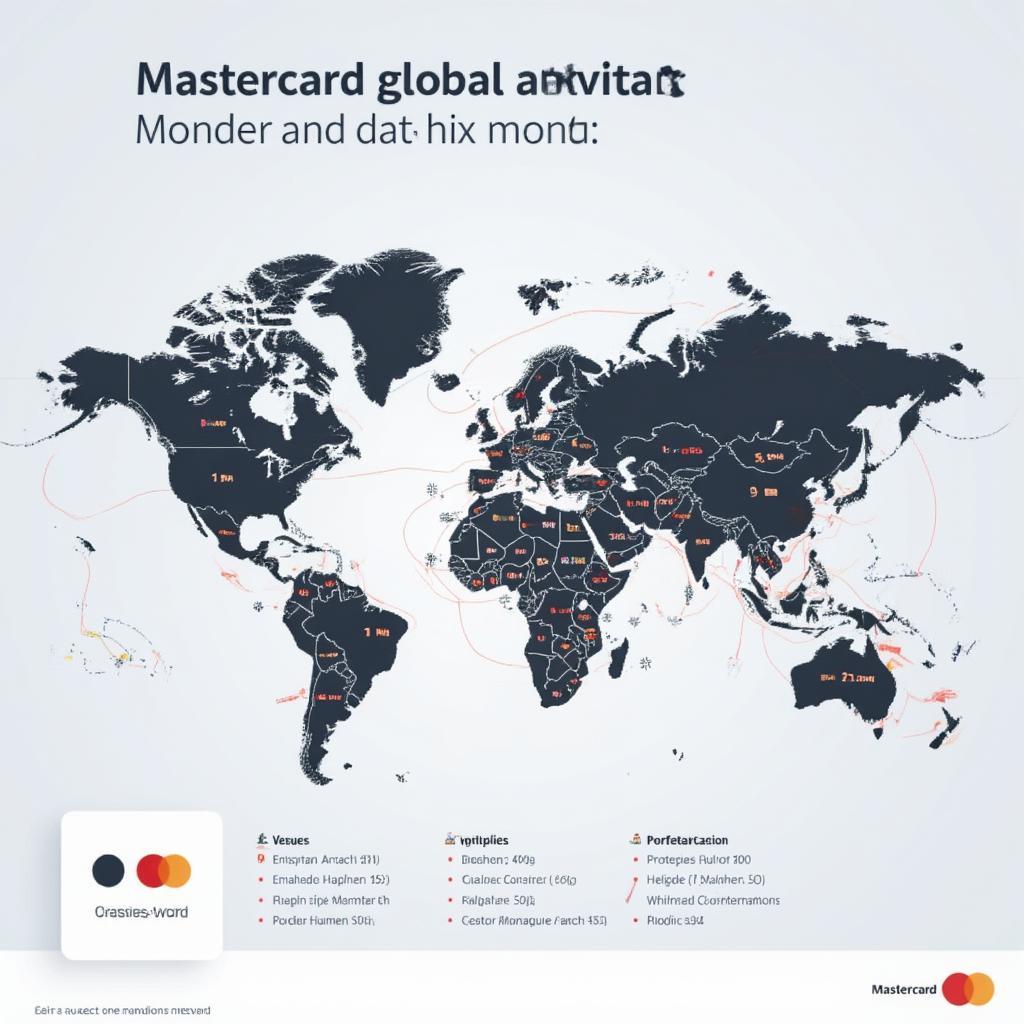Mastercard, a global payments technology giant, has achieved remarkable success over the decades. Understanding Mastercard’s global dominance requires a deep dive into the various macro-environmental factors that have shaped its trajectory. This comprehensive PESTEL analysis of Mastercard will explore the Political, Economic, Social, Technological, Environmental, and Legal factors influencing its operations and future strategies. Understanding Mastercard’s global success: A comprehensive PESTEL analysis reveals the intricate interplay of these factors, providing valuable insights for businesses, scholars, and strategic analysts.
Table Content:
- Political Factors Influencing Mastercard
- Impact of Geopolitical Events
- Economic Factors Shaping Mastercard’s Performance
- The Rise of Emerging Markets
- Social Factors Impacting Mastercard’s Strategies
- The Shift Towards Digital Payments
- Technological Advancements Driving Mastercard’s Innovation
- Cybersecurity and Data Protection
- Environmental Factors and Mastercard’s Sustainability Initiatives
- Focus on Sustainable Practices
- Legal Factors Affecting Mastercard’s Operations
- Navigating Regulatory Compliance
- Frequently Asked Questions
- Conclusion
Political Factors Influencing Mastercard
How have political landscapes impacted Mastercard’s growth? Government regulations, trade policies, and political stability play a crucial role in shaping the financial landscape within which Mastercard operates. For example, regulations promoting cashless transactions and open banking have created opportunities for Mastercard to expand its services. Conversely, political instability in certain regions can pose challenges to its operations.
Impact of Geopolitical Events
How do geopolitical events affect Mastercard’s strategies? Geopolitical events, such as trade wars and international sanctions, can significantly impact Mastercard’s cross-border transactions and overall business performance. The company needs to adapt to evolving political situations and navigate complex regulatory environments to maintain its global presence.
Economic Factors Shaping Mastercard’s Performance
How does the global economy influence Mastercard’s business? Economic growth, interest rates, inflation, and exchange rates all have a direct impact on consumer spending and borrowing habits, which in turn influence Mastercard’s transaction volumes. Economic downturns can lead to reduced consumer spending, affecting Mastercard’s revenue streams.
The Rise of Emerging Markets
What opportunities do emerging markets present for Mastercard? Emerging markets with growing middle classes and increasing adoption of digital payments represent significant growth opportunities for Mastercard. The company strategically focuses on these markets to expand its customer base and drive future revenue growth.
Social Factors Impacting Mastercard’s Strategies
How do social trends influence Mastercard’s services? Changing consumer preferences, such as the increasing demand for contactless payments and mobile wallets, have pushed Mastercard to innovate and develop new payment solutions. Understanding social trends is essential for Mastercard to stay relevant and cater to evolving consumer demands.
The Shift Towards Digital Payments
Why is the shift towards digital payments important for Mastercard? The growing preference for digital payments and the decline in cash usage have been major drivers of Mastercard’s growth. The company has capitalized on this trend by developing innovative digital payment solutions and expanding its network of merchants and partners.
Technological Advancements Driving Mastercard’s Innovation
How does technology influence Mastercard’s operations? Technological advancements, including the rise of mobile payments, blockchain technology, and artificial intelligence, have revolutionized the payments industry. Mastercard invests heavily in research and development to stay at the forefront of these technological advancements and offer cutting-edge payment solutions.
Cybersecurity and Data Protection
Why are cybersecurity and data protection crucial for Mastercard? With the increasing digitization of financial transactions, cybersecurity and data protection are paramount for Mastercard. The company invests heavily in security measures to protect customer data and maintain trust in its brand.
 Mastercard's Technology Innovation
Mastercard's Technology Innovation
Environmental Factors and Mastercard’s Sustainability Initiatives
How is Mastercard addressing environmental concerns? Growing awareness of environmental issues has led to increased demand for sustainable business practices. Mastercard is actively involved in various sustainability initiatives, such as reducing its carbon footprint and promoting environmentally friendly payment solutions.
Focus on Sustainable Practices
What are some of Mastercard’s sustainable practices? Mastercard is committed to reducing its environmental impact through various initiatives, such as using renewable energy sources, promoting paperless transactions, and supporting environmentally conscious businesses.
Legal Factors Affecting Mastercard’s Operations
How do legal frameworks impact Mastercard’s business? Data privacy regulations, anti-money laundering laws, and other legal frameworks significantly impact Mastercard’s operations. The company must comply with these regulations in all the markets it operates in, which requires constant monitoring and adaptation to changing legal landscapes.
Navigating Regulatory Compliance
Why is regulatory compliance essential for Mastercard? Compliance with various legal and regulatory requirements is crucial for Mastercard to maintain its license to operate and avoid penalties. The company has a dedicated team to ensure compliance and navigate complex legal frameworks across different jurisdictions.
Frequently Asked Questions
Q: What is Mastercard’s primary business model?
A: Mastercard operates a payment network that connects consumers, merchants, and financial institutions to facilitate electronic transactions.
Q: How does Mastercard generate revenue?
A: Mastercard earns revenue primarily through transaction fees, assessments on transaction volume, and other service charges.
Q: Who are Mastercard’s main competitors?
A: Mastercard’s main competitors include Visa, American Express, and Discover.
Q: How does Mastercard address fraud prevention?
A: Mastercard employs advanced security technologies and fraud detection systems to protect consumers and merchants from fraudulent activities.
Q: What are Mastercard’s future growth prospects?
A: Mastercard’s future growth prospects are driven by the continued growth of digital payments, expansion into emerging markets, and innovation in payment technologies.
Conclusion
Mastercard’s global success is a testament to its ability to adapt and thrive in a dynamic environment. Understanding Mastercard’s global success: A comprehensive PESTEL analysis highlights the complex interplay of political, economic, social, technological, environmental, and legal factors that have shaped its journey. By continuously analyzing these factors and adapting its strategies accordingly, Mastercard is well-positioned to maintain its leading position in the global payments landscape. The company’s commitment to innovation, security, and sustainability will continue to drive its growth and shape the future of payments.



